Best Crypto Futures Trading Platform: Our Top Picks

Cryptocurrency futures trading has become an essential part of the digital asset ecosystem, offering you sophisticated instruments to hedge positions, diversify portfolios, and profit from market fluctuations. With the right futures trading platform, you can navigate the volatile crypto markets more effectively. The importance of choosing a platform aligns with your trading strategy, needs for functionality, and expectations for security – it cannot be overstated. This guide aims to equip you with crucial information on the industry’s leading crypto futures trading platforms in 2024, evaluating them on multiple fronts such as features, fees, security measures, liquidity levels, and quality of customer support.
The landscape of crypto futures trading is diverse, with numerous platforms vying for your attention by offering unique benefits and tools designed to enhance your trading experience. Filtering through this multitude of options is a mammoth task, so this analysis provides an insightful overview of 13 notable platforms that stand out from the crowd. Reviewed platforms include Binance Futures, BitMEX, Bybit, Deribit, FTX, Huobi Futures, Kraken Futures, OKEx, Bitfinex, eToroX, CME Group, Bakkt, and CoinFLEX. Each of these platforms brings a distinctive set of features to the table, catering to a wide array of trading preferences and risk appetites.
Your journey through the world of crypto futures trading platforms starts here, with a thorough evaluation aimed at assisting you in making an informed decision. Whether you’re a seasoned trader or just starting out, understanding what each platform offers will help you to uncover the trading environment that not only meets your demands but also empowers your trading goals.
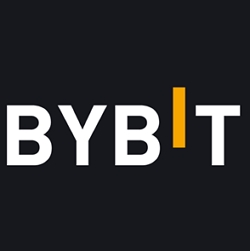
Bybit
Derivative trading focus with futures and perpetual contracts.
Offers copy trading for following successful traders.
Up to 100x leverage on certain products.
Strong security record, not known to have been hacked.
Supports spot, margin, and P2P trading.
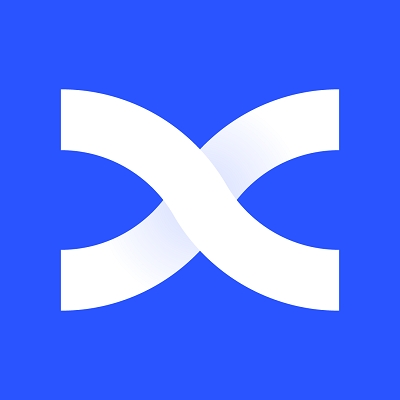
BingX
Offers copy and grid trading.
Accessible in multiple languages and currencies.
Has demo trading with VST (Virtual USDT).
Provides a platform for trading cryptocurrencies, indices, and commodities.

Phemex
No-KYC requirements for crypto-to-crypto trading.
Offers both spot and contract trading.
Zero-fee spot trading for premium members.
User-friendly interface with customizable widgets.
Cold wallet storage system for enhanced security.

Stormgain
Cryptocurrency trading with leverage up to 500x on certain products.
Integrated trading signals based on expert analysis and AI
Deposit options via credit/debit card or crypto transfer.
In-app multi-currency wallet with support for top cryptocurrencies.
Support for spot, margin, and futures trading.

MEXC
Offers spot, margin, and futures trading.
Features a range of DeFi services and staking options.
Has an extensive list of available cryptocurrencies for trading.
Offers an API for automated trading.
Provides an MX DeFi function for liquidity mining.
Best Crypto Futures Exchanges of 2024
#1. Bybit
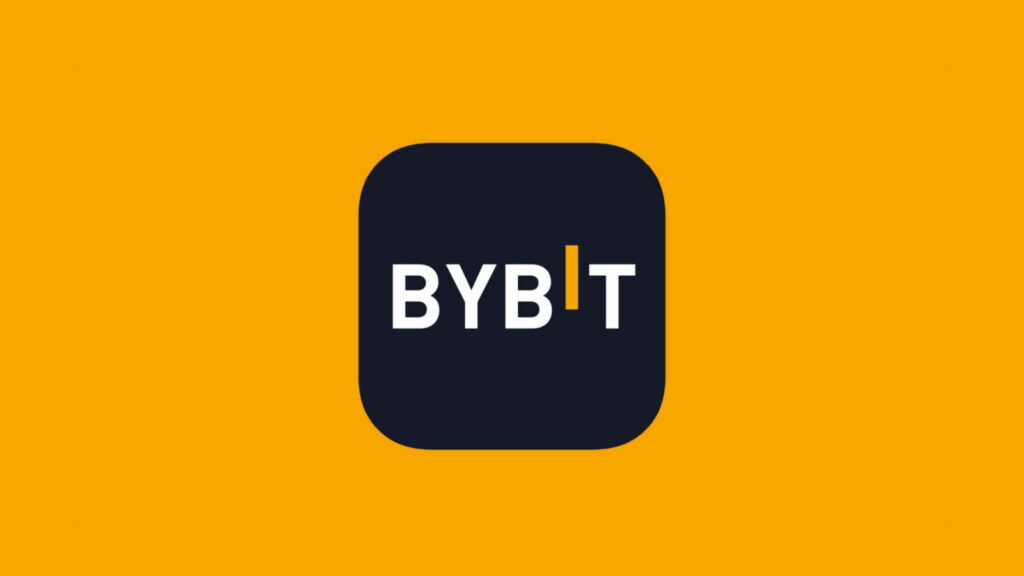
Bybit was founded in March 2018 and is headquartered in Singapore. It quickly rose to prominence in the crypto trading community, known for its user-friendly interface and reliability. Bybit has garnered a substantial user base of over 2 million and routinely sees daily trading volumes in excess of $10 billion, placing it among the leaders for cryptocurrency futures exchanges.
Key Features of Bybit:
- Supports a wide range of coins for futures trading.
- Offers perpetual and inverse futures contracts for leading cryptocurrencies such as BTC, ETH, XRP, and EOS, with leverage options up to 100x.
- Features innovative trading tools that enhance your trading strategy:
- Mutual insurance to protect against market volatility
- Dual price mechanism to prevent unfair liquidation
- Smart trading system including conditional orders, stop-loss, and take-profit functions
- Competitive fees structure: 0.075% for takers and a maker rebate of -0.025%.
- Prioritizes security with the use of multi-signature cold wallets, two-factor authentication (2FA), and SSL encryption to secure your trades.
- Customer support is highly accessible, offering 24/7 live chat, email communication, and support via social media channels.
Pros and Cons of Bybit:
Pros:
- Simple and straightforward platform, making it easy for you to navigate.
- Known for its fast transaction speeds and overall platform reliability.
- Offers numerous bonuses and rewards which you can take advantage of.
- Available in multiple languages, facilitating a global user experience.
Cons:
- The selection of coins is more limited compared to other major exchanges.
- Does not support fiat currency deposits or withdrawals.
- Bybit is not available in some countries due to regulatory restrictions.
#2. BingX
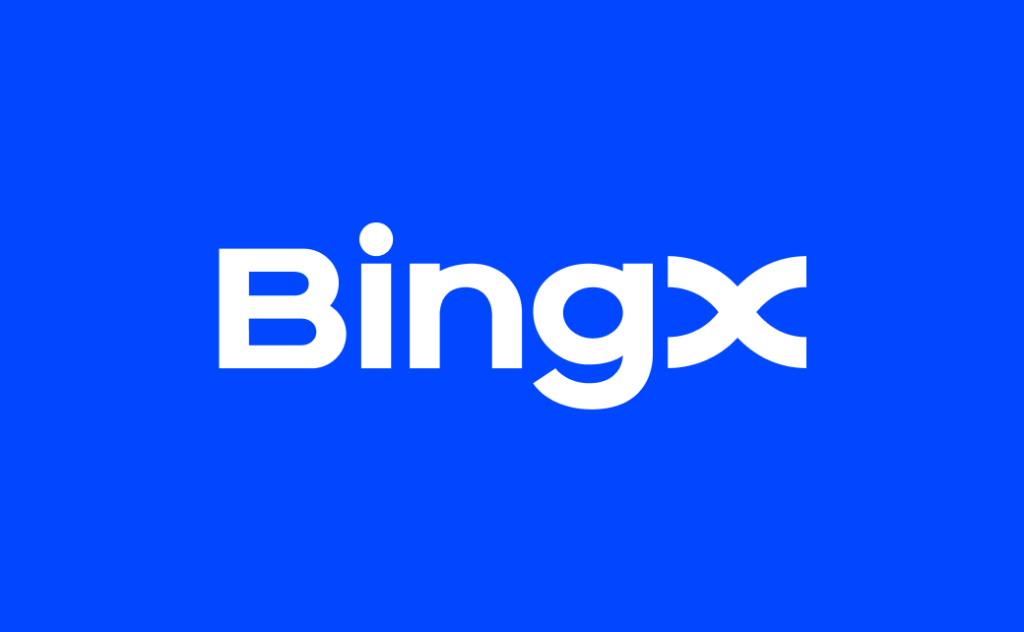
BingX, established as a pioneering platform in the cryptocurrency trading landscape, offers you an array of features for futures trading. It harnesses the strengths of AI and blockchain to provide a secure and advanced trading environment. The platform is noted for its variety of contracts and competitive fee structure.
Key Features
- Leverage & Contracts: You can engage in perpetual and quarterly futures contracts for leading coins like BTC, ETH, LTC, and BCH, with leverage options going as high as 150x.
- Competitive Fees: Enjoy low fees on BingX, with 0.04% for makers and 0.06% for takers, optimizing your trading costs.
- AI Trading Bots: Benefit from AI-based trading bots that autonomously execute trades by analyzing market patterns and strategies.
- Revenue Sharing: Experience zero-fee trading paired with a revenue-sharing model, where 80% of platform profits are redistributed to users.
- Security: Rely on top-tier security features involving decentralized custody, smart contracts, and biometric verification systems.
- Social Trading: Partake in social trading that lets you connect with a network of traders to swap strategies and trading cues.
Advantages
- Asset Diversity: BingX stands out for the extensive range of assets available for trading.
- Fiat Transactions: The platform supports direct fiat deposits and withdrawals.
- Security Priority: With security as a paramount concern, BingX employs extensive safety measures.
- Customer Support: Responsive customer service to assist you with your trading needs.
Considerations
- Liquidity: You might find a lower level of liquidity when compared to larger exchanges.
- Interface: New users could face a learning curve due to the platform’s comprehensive features.
- Regional Availability: Certain regions, including China and Iran, may not have access to BingX’s services.
#3. Phemex
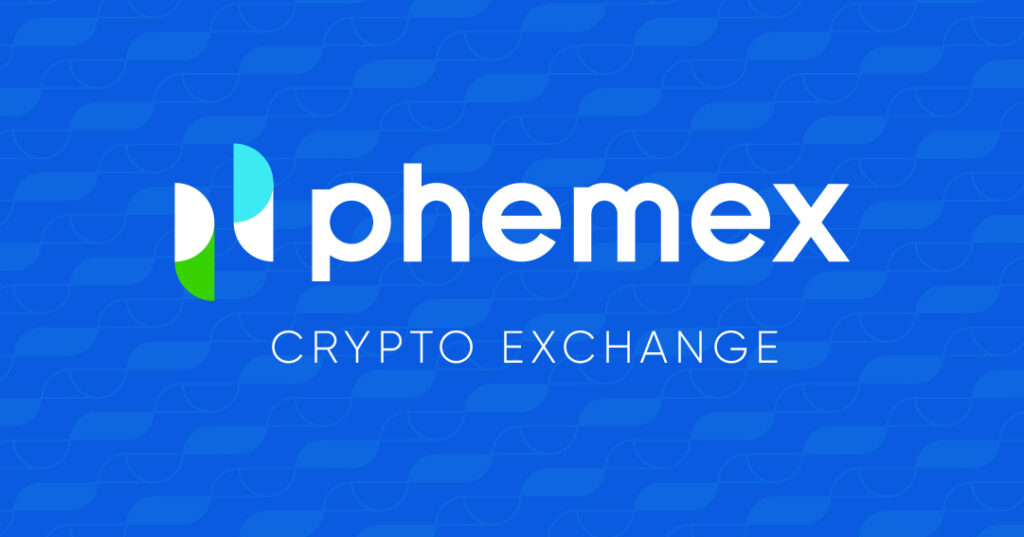
Phemex was established by a team of former Wall Street executives and engineers in 2019. It is based in Singapore and has quickly built a reputation for being a professional and rapid cryptocurrency futures trading platform.
Key Features of Phemex:
- Futures Contracts: Offers perpetual and linear futures contracts on various cryptocurrencies including BTC, ETH, XRP, and LINK with leverage options up to 100x.
- Spot Trading: Zero-fee spot trading is available for premium members, featuring access to more than 50 cryptocurrencies.
- Competitive Fees: Taker fees start from 0.075%, while makers can benefit from a rebate of -0.025%.
- Top-notch Security: Implements hierarchical deterministic cold wallets, two-factor authentication (2FA), and address whitelisting for enhanced security of assets.
- Trading Tools: Phemex provides unique trading tools, along with sub-accounts feature and a trading simulator for practice without risk.
Pros and Cons of Phemex:
Pros:
- Professional and fast platform, catering to both spot and futures trading.
- Attractive fee structure for traders, with low costs and rebates for makers.
- Provides a range of educational resources and a diverse selection of tradable assets.
Cons:
- Absence of fiat currency support may deter certain users.
- Customer support channels are more limited compared to other platforms.
- Access to Phemex is restricted in some regions, including the United States and Singapore, which can limit its user base.
Your experience with Phemex will be influenced by these features and limitations, so consider your trading needs and whether Phemex aligns with them when choosing a futures trading platform.
#4. Stormgain
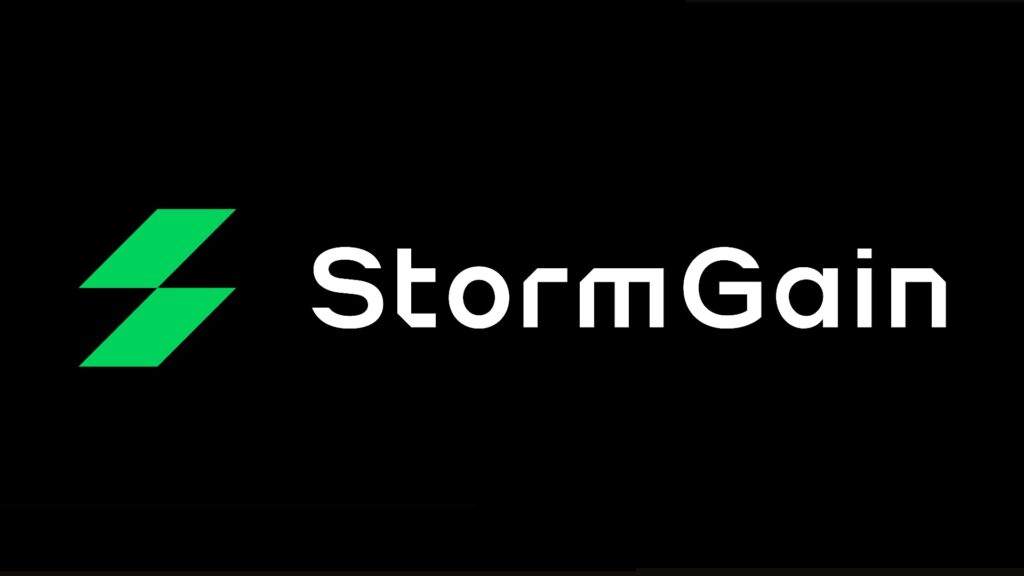
Founded in 2019 and based in the Seychelles, Stormgain has positioned itself as a user-friendly cryptocurrency futures trading platform. It places particular emphasis on mobile accessibility and caters to both the novice and seasoned traders looking for an intuitive trading experience.
Main Features of Stormgain:
- Contracts: Offers perpetual and turbo futures contracts on major cryptocurrencies including BTC, ETH, XRP, LTC, with leverage options reaching up to 200x.
- Mining: Unique cloud mining feature enables you to mine crypto utilizing the platform’s resources.
- Fees: Competitive fee structure that starts from 0.15% for takers and as low as 0.05% for makers.
- Security: Enhanced with cold storage of funds, mandatory two-factor authentication, and SSL encryption to safeguard your transactions.
- Loyalty program: Includes a range of benefits from discounts to cashback, rewarding your activities on the platform.
Pros and Cons of StormGain:
Pros:
- Registration: Streamlined and efficient sign-up process.
- Funding: Supports diverse funding options, including fiat and credit card deposits and withdrawals.
- Mobile App: Fully-featured mobile application for trading on the go.
- Support: Access to 24/7 customer service for assistance anytime.
Cons:
- Liquidity: Some users may find liquidity to be lower compared to other platforms.
- Asset Selection: While growing, the asset selection remains somewhat limited.
- Trade Requirements: The platform stipulates a higher minimum deposit and trade size than some competitors, which might be a barrier for those with limited capital to start trading.
#5. MEXC

Founded in April 2018, MEXC Global is headquartered in Singapore and has built a solid reputation as a comprehensive and diverse platform for crypto futures trading. With an extensive global reach and a significant user base, MEXC stands out for offering a wide array of financial instruments and tools for cryptocurrency enthusiasts.
Key Features of MEXC:
- Futures Contracts: You can trade perpetual and quarterly futures for BTC, ETH, and over 100 other cryptocurrencies with leverage up to 100x.
- Spot Trading: MEXC offers spot trading with zero fees for makers, providing access to a vast selection of over 300 cryptocurrencies.
- Competitive Fees: Taker fees start at just 0.06%, while makers can benefit from negative fees, starting at -0.02%.
- Trading Tools: Beyond spot and margin trading, you have ETF trading along with staking and lending services. Automated trading is made possible through MEXC’s trading bots.
- Security: Expect high security with multi-layered protection, two-factor authentication, and anti-phishing measures.
- Support & Accessibility: The platform supports multiple languages, currencies, and payment methods, enhancing user accessibility and convenience.
Pros and Cons of MEXC:
Pros:
- High liquidity ensures smooth trading experiences.
- A broad range of assets broadens your trading and investment horizons.
- Support for both fiat and various cryptocurrencies offers flexibility in funding your account.
- Multilingual customer service caters to a global audience efficiently.
Cons:
- New users may find MEXC’s interface complex at first glance.
- Scheduled system maintenance periods may temporarily disrupt trading activities.
- Some countries, including the US and Japan, face restricted access to MEXC services.
#6. Kraken
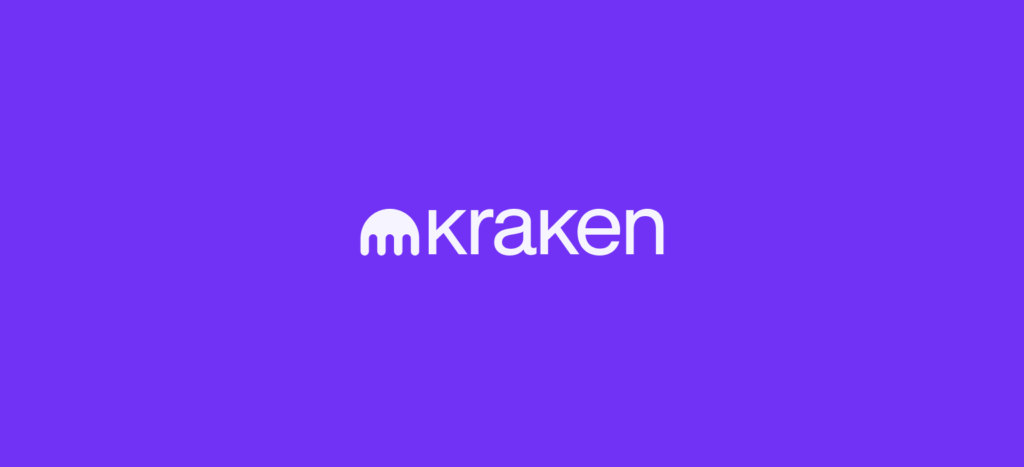
Founded in 2011 and based in San Francisco, Kraken is esteemed among cryptocurrency enthusiasts for its robust security measures and a well-earned reputation for reliability. This platform is a go-to for traders who value industry experience and a track record of stability in the often tumultuous crypto market.
Main Features of Kraken:
- Crypto Futures: Offers perpetual and fixed-date futures contracts on coins like BTC, ETH, LTC, XRP, and BCH, with leverage up to 50x.
- Trading Fees: Competitive fees at 0.02% for makers and 0.05% for takers.
- Professional Tools: Provides advanced order types, a comprehensive trading API, and options for margin trading.
- Spot Trading: Engage in spot trading with low fees across a suite of over 50 cryptocurrencies.
- Fiat Currency Support: Enables deposits and withdrawals in multiple currencies, including USD, EUR, GBP, CAD, etc.
- Security Measures: Prioritizes the safety of assets with 95% of funds held in cold storage, alongside mandatory two-factor authentication and PGP encryption.
- Regulatory Compliance: Maintains a global presence with licenses and registrations in various jurisdictions, reinforcing its commitment to legal compliance.
Pros and Cons of Kraken:
Pros:
- Reputation: A veteran and reputable platform for both spot and futures trading.
- Fiat Access: Supports fiat currency transactions for greater convenience.
- Security: Adheres to high-security standards with robust protocols.
- Compliance: Regulatory compliance ensures safety and trustworthiness.
Cons:
- Selection: Features a limited selection of cryptocurrencies.
- Leverage: Offers lower leverage compared to some competitors.
- Interface: May present a learning curve with its complex user interface.
- Customer Support: Experiences indicate slower response times.
- Stability: Potential for downtime and a slow verification process can be drawbacks for some users.
Kraken positions itself as a premier choice for traders who prioritize security and regulatory compliance.
#7. OKX
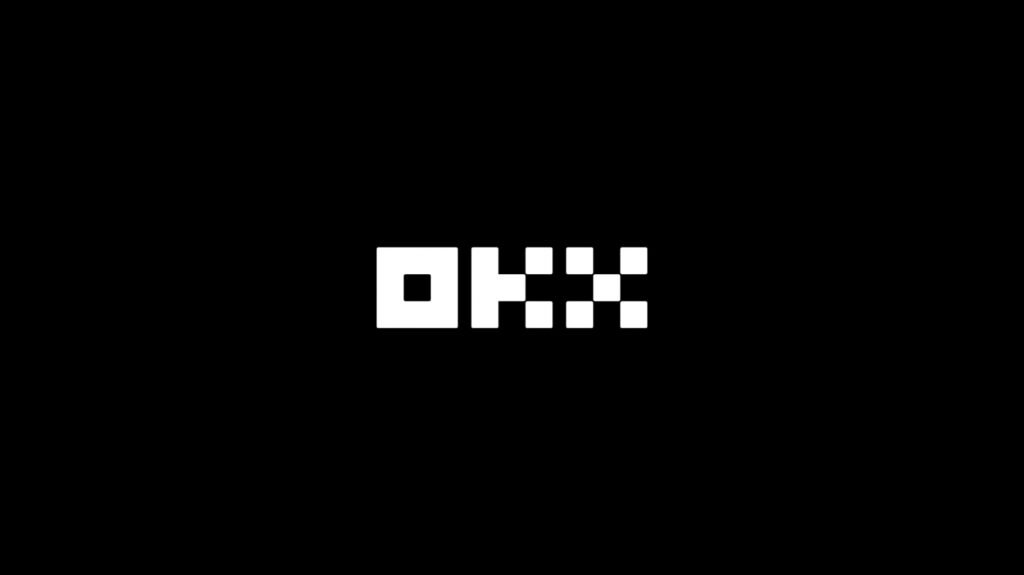
Founded in 2017 and headquartered in Seychelles, OKX has established itself as one of the most innovative and prominent crypto exchanges, especially for advanced traders focused on crypto futures trading. Known for its versatile trading tools, OKX offers a platform for experienced traders to engage with a wide array of cryptocurrencies.
Key Features of OKX Include:
- Futures Contracts: Perpetual, linear, and inverse futures contracts for an array of assets, including BTC, ETH, and over 60 other cryptocurrencies, with leverage options going up to 100x.
- Trading Tools: The exchange provides comprehensive tools for spot, margin, and options trading, as well as access to DeFi services, NFT platforms, and a mining pool.
- Options and Swaps: Allows for varied and tailor-made trading strategies by offering customizable options and swap contracts.
- Competitive Fees: Trading fees are attractively low. Takers are charged from 0.05%, while makers can experience negative fees down to -0.02%.
- Security Measures: A combination of cold and hot wallet solutions, two-factor authentication, and anti-DDoS measures position OKX among the more secure platforms in the industry.
- Resource Hub: A suite of trading resources is at your disposal, including a trading simulator, regular market analyses, and an educational academy.
Pros and Cons of OKX:
Pros:
- Industry-leading, showcasing continuous innovation.
- Diverse range of trading products.
- Attractive fee structure for all levels of traders.
- Strong security protocols in place.
- Useful trading tools and educational resources.
Cons:
- Offering a more limited selection of coins compared to some competitors.
- Absence of fiat currency deposit and withdrawal options.
- Services may be restricted in certain jurisdictions.
- Might present a steep learning curve for those new to advanced trading platforms.
#8. Binance

Founded in 2017 with headquarters in the Cayman Islands, Binance rapidly ascended to become a titan in the crypto exchange world. Renowned for its expansive user base and significant market share, Binance stands as the preeminent hub for crypto futures trading.
Key Features of Binance Futures:
- Diversity of Contracts: You have access to perpetual and quarterly futures contracts for Bitcoin (BTC), Ethereum (ETH), and a wide selection of over 100 cryptocurrencies.
- Leverage: Up to 125x leverage allows for significant trading flexibility.
- Competitive Fees: Enjoy 0.02% maker and 0.04% taker fees.
- Varied Trading Tools: Options range from spot and margin trading to savings, all with low fees for over 200 cryptocurrencies.
- Currency Support: Binance supports fiat deposits and withdrawals in over 60 currencies, providing versatility with multiple payment methods.
- Security Measures: Safety is underscored by the SAFU fund, two-factor authentication, and address whitelisting to safeguard your assets.
- Comprehensive Trading Resources: A well-equipped trading dashboard, market analysis, and an informative academy are at your disposal.
Pros and Cons of Binance:
Pros:
- High liquidity
- Large user base, highly popular
- Multiple trading offerings
- Fiat currency integration
- Robust security features
- 24/7 customer support
Cons:
- Regulatory challenges
- Interface complexity for new traders
- Restricted in certain countries
- Potential for system overloads
Binance embodies a powerful ecosystem for futures trading, underscored by its robust liquidity and volume, which ensure you can execute large trades with minimal slippage. However, the platform’s complexity might overwhelm newcomers, and its navigation through the regulatory landscape requires attention. Despite occasional technical strains, your trading on Binance is backed by comprehensive tools and strong community trust.
#9. BitMEX
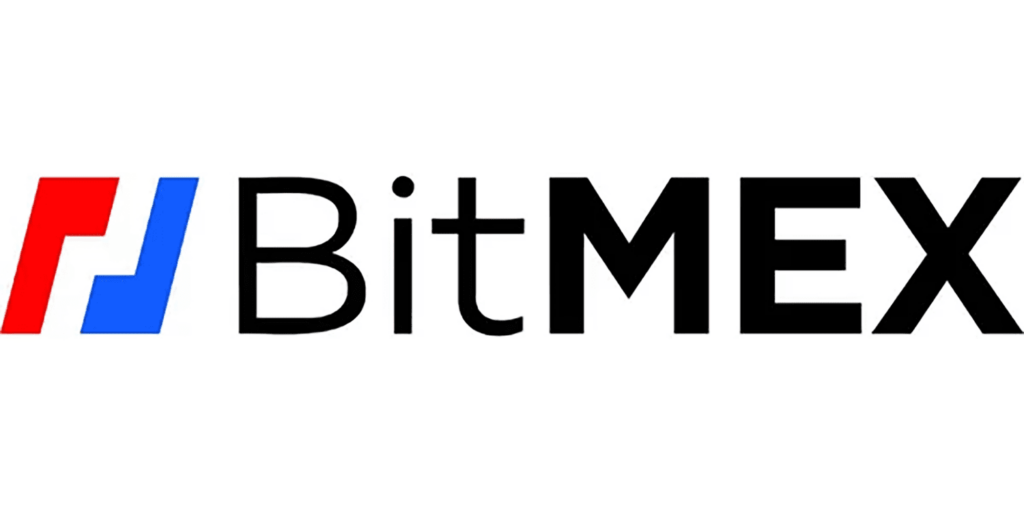
BitMEX, established in 2014, is headquartered in the Seychelles and has steadily built a reputation for being a robust platform tailored for high-volume traders who are accustomed to engaging with high-risk environments. This platform is renowned among veteran traders for its leverage capacity and range of contracts.
Main Features of BitMEX:
- Contracts Types: BitMEX offers both perpetual and fixed-date futures contracts, giving you access to Bitcoin, Ethereum, and over 10 other cryptocurrencies.
- Leverage: You can trade with leverage up to 100x, empowering you to magnify potential gains. However, this also increases risk.
- Trading Fees: Fees are competitive, with takers starting at 0.075% and makers able to potentially earn a rebate of -0.025%.
- Security Measures: Security is prioritized with multi-signature cold wallets, two-factor authentication, and PGP encryption to protect your communications.
- Tools and Resources: A trading dashboard, comprehensive market analysis, and insightful research reports are available to support your trading decisions.
Pros and Cons of BitMEX:
Pros:
- Established: One of the first platforms in the crypto futures space.
- Competitive Fees: Lower costs as compared to many competitors.
- Security: Robust measures to protect funds and data.
- Expertise: The team’s experience translates into a stable trading environment.
- Liquidity: High liquidity facilitates efficient order execution.
Cons:
- Coin Selection: Offers a more limited range of coins.
- Fiat Transactions: No options for fiat deposit or withdrawal.
- Geographical Restrictions: Access is restricted in some jurisdictions.
- System Overloads: May occasionally encounter system overload issues during peak trading periods.
When trading on BitMEX, it is crucial to employ prudent risk management, especially when utilizing leverage. The potential for both profits and losses is magnified, and careful consideration should be given to each trade.
#10. Bitget
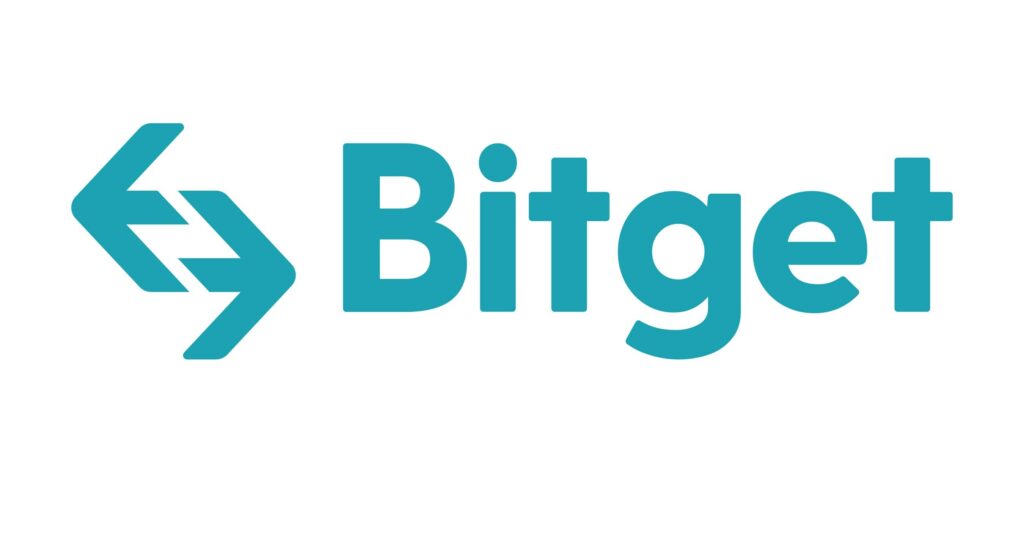
Bitget, established in 2018, is headquartered in Singapore and has quickly built a reputable name in the crypto trading community. It is especially geared towards mobile users and caters to those new to crypto futures, offering a platform that is both fast and user-friendly.
Key Features of Bitget:
- Cryptocurrency Futures: Offers perpetual and linear futures contracts for Bitcoin (BTC), Ethereum (ETH), and over 40 other cryptocurrencies.
- Leverage: Users can trade with up to 100x leverage on certain contracts.
- Trading Tools:
- Copy trading: Follow the strategies of experienced traders.
- Quanto Swap Contract: A flexible way to trade cross-currency derivatives.
- USDT Margined Contracts: Trade futures with USDT as collateral for easier profit and loss tracking.
- Fees: Competitive fee structure with 0.04% for takers and a rebate of -0.01% for makers.
- Security: Implements robust security measures including cold and hot wallet systems, two-factor authentication (2FA), and SSL encryption.
- Global Accessibility: Supports multiple languages and currencies to cater to a global user base.
Pros and Cons of Bitget
Pros:
- Registration process is straightforward and can be completed quickly.
- Supports both fiat and a diverse range of cryptocurrencies.
- Accessible through an intuitive mobile application.
- Customer support is available 24/7 to assist with any issues.
Cons:
- Some users may find liquidity to be lower than on competing platforms.
- The range of available assets is more limited compared to larger exchanges.
- Regulatory restrictions mean Bitget is not available in certain regions, including the USA and Canada.
#11. GMX
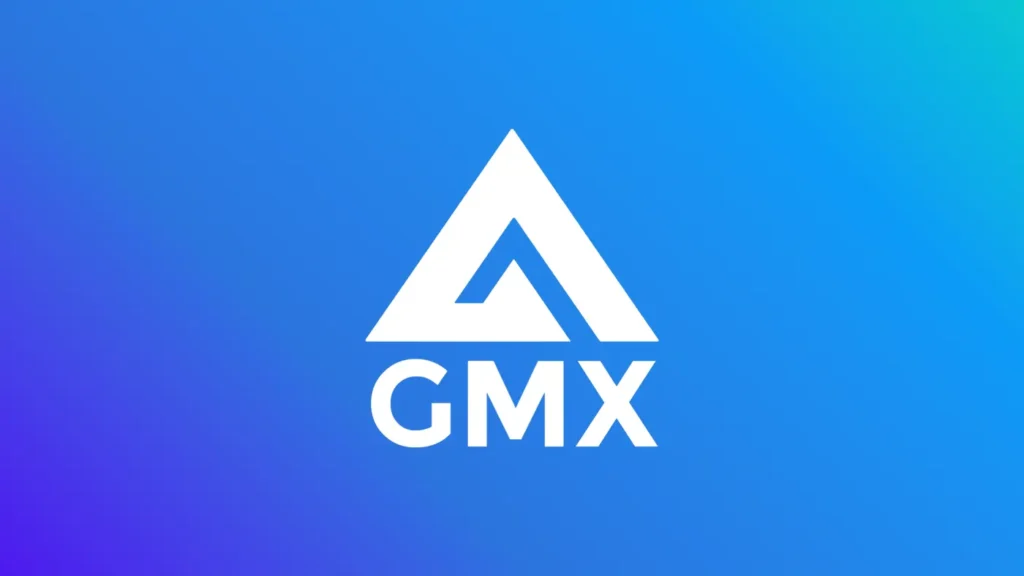
GMX, established as a relatively new player in the crypto futures trading sphere, provides a decentralized exchange platform catering to various crypto trading needs. It distinguishes itself with a focus on blockchain technology and offers you secure, innovative trading experiences.
Key Features of GMX:
- Perpetual and Inverse Futures: You have access to perpetual and inverse futures contracts for popular cryptocurrencies such as BTC and ETH, along with over 20 other coins, with leverage options of up to 50x.
- Fees: Benefit from competitively low fees, at 0.025% for makers and 0.075% for takers, plus the advantage of zero-fee transactions when using the GMX governance token.
- Security: Enjoy enhanced security through decentralized custody, robust smart contracts, and biometric verification methods.
- Trading Tools: Utilize advanced trading features, such as zero-gas fee transactions, cross-margin mode, and the governance token, which empowers you with a stake in the platform’s future.
- Social Trading: Engage with a vibrant community of traders sharing tactics, insights, and trading signals.
- Cross-Chain Compatibility: Trade effortlessly across multiple blockchain networks, including Ethereum, Binance Smart Chain, and Polygon.
Pros and Cons of GMX:
Pros:
- Cutting-edge Platform: Your trading experience is powered by the latest in decentralized finance advancements.
- Zero Fees for Holders: GMX token holders trade without fees, creating a cost-effective trading environment.
- High Security: Decentralized systems offer enhanced security features, protecting your assets and trades.
- Cross-Chain Functionality: Flexibility to operate across different blockchains widens your trading horizons.
- Social Trading: You can improve your trading strategies by learning from the community.
Cons:
- New Market Player: Being relatively new to the market can pose uncertainties regarding long-term viability.
- Limited Cryptocurrency Selection: Your trading options are limited to the selection of coins offered.
- No Fiat Transactions: The platform doesn’t support fiat deposits or withdrawals, potentially limiting accessibility.
- Geographical Restrictions: GMX services may not be available in your region due to legal constraints.
#12. Deribit
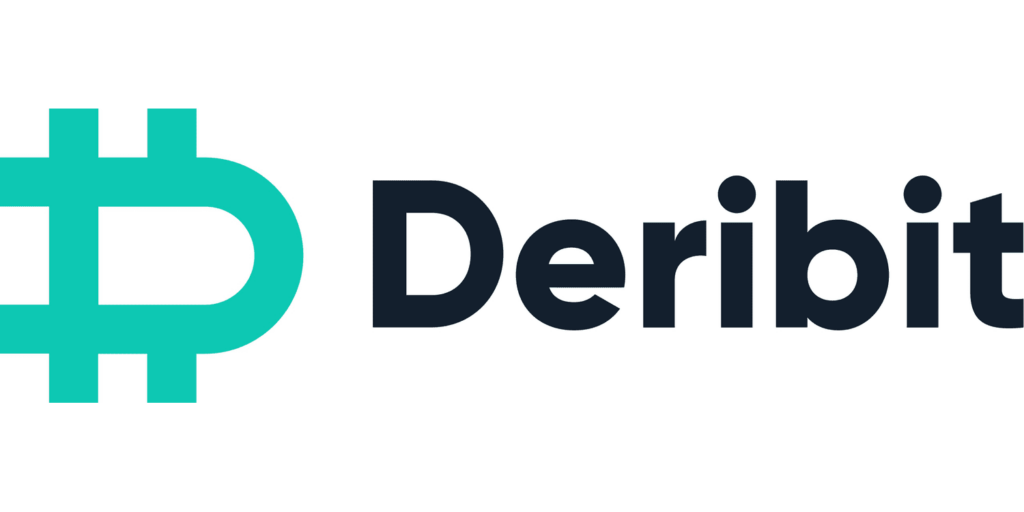
Founded in 2016 and headquartered in Panama, Deribit is renowned as a cutting-edge platform specializing in cryptocurrency derivatives, including options and futures. Its name is a portmanteau of “Derivatives” and “Bitcoin,” signaling its focus on crypto futures and options trading.
Key Features:
- Futures Contracts: Offers both perpetual and fixed-date futures contracts for BTC and ETH, with the possibility of leveraging up to 50x.
- Options Trading: Features a range of options contracts, facilitating customizable trading strategies.
- Competitive Fees: Charging as low as -0.01% for makers and 0.05% for takers.
- High Security Measures: Implements stringent security with 99% of assets in cold storage, complemented by two-factor authentication and address whitelisting.
Deribit equips you with professional-grade tools suited for advanced trading strategies. These tools include:
- A robust trading API for automated strategies.
- An insurance fund to mitigate the risk of auto-deleveraging in traders’ positions.
Pros and Cons of Deribit:
Pros:
- Specialization in advanced options and futures trading.
- Low transaction fees enhance profitability.
- High security ensuring the safety of your funds.
- Notable liquidity and execution speed that provide a seamless trading experience.
- Transparent operations underpinned by an experienced leadership team.
Cons:
- Limited variety of cryptocurrencies.
- No support for fiat currency deposits or withdrawals.
- Access restrictions in various countries, which may affect your ability to use the platform depending on your location.
#13. PrimeXBT

Founded in 2018 and headquartered in Seychelles, PrimeXBT has indeed carved a reputable niche in the competitive crypto futures trading market. It distinguishes itself with a broad range of offerings and capabilities, emphasizing multi-asset trading and effective portfolio management.
Key Features of PrimeXBT:
- Crypto Futures Contracts: You have access to perpetual and fixed-date futures contracts for Bitcoin (BTC), Ethereum (ETH), and over 50 other cryptocurrencies. Leverage is robust, reaching up to 100x.
- Extensive Market Access: Engage in forex, stock, and commodity trading, diving into over 200 global markets and instruments.
- Trading Tools: Benefit from a myriad of trading options, including spot, margin, and forex trading. The Covesting module lets you copy the trades of successful traders, while the Turbo platform suits those seeking quick trading opportunities.
- Competitive Fees: Enjoy low fee structures, starting from 0.05% for both takers and makers.
- Security Measures: Your assets are protected with multiple security measures, such as cold storage for funds, two-factor authentication for user accounts, and SSL encryption to safeguard data.
Pros of PrimeXBT:
- Offers a diverse trading experience with multi-asset capabilities.
- Covesting allows you to follow the strategies of other traders.
- Particularly low fees enhance potential profits.
- High standards of security to protect your investments.
- Registration is straightforward and quick.
- Supports numerous cryptocurrencies and fiat.
- Mobile app accessibility and 24/7 customer support cater to your continuous trading needs.
Cons of PrimeXBT:
- Coin selection more limited than some competitors.
- No fiat deposits or withdrawals; crypto transactions only.
- Restricted in several jurisdictions, with notable exclusions like the US and Canada.
- Might experience low liquidity issues.
- Some users may find the asset selection limited.
Frequently Asked Questions
In this section, you’ll find information about different crypto futures trading platforms that offer unique benefits such as zero commission, minimal deposits, and are suitable for U.S. residents. You’ll get specific insights to help you identify the best platform for your crypto futures trading needs.
Crypto Futures Trading Platform With Zero Commission
Certain platforms offer the ability to trade futures without any commission fees. Do research to find those that provide such benefits while also considering their reliability and overall fee structure.
Crypto Futures Trading Platform With Zero Brokerage
Brokerage fees can add up, but there are platforms that eliminate these costs completely. Look for these platforms if you’re interested in maximizing your trades’ cost-efficiency but be aware of how they might offset those costs in other areas.
Crypto Futures Trading Platform With Zero Or Minimum Deposits
Starting with a low financial barrier is possible with some platforms that offer zero or minimal initial deposits. It’s an important factor for traders not willing or able to invest large amounts upfront.
What is the best platform to trade crypto futures?
The “best” platform varies based on individual needs, including fee structures, user interface, security measures, and market access. Binance and BitMEX are often noted for their comprehensive features and liquidity.
Which exchange is best for future trading crypto?
Top exchanges like Binance, BitMEX, and Deribit are frequently recommended for their advanced platforms geared towards future trading with competitive fees and robust security.
What is the cheapest futures trading platform for crypto?
The term “cheapest” can be subjective as it depends on trading volume and market conditions. Platforms such as FTX and Binance are noted for their relatively low fee structures.
Can you do crypto futures trading in US?
Yes, you can trade crypto futures in the U.S., but only on platforms that comply with U.S. regulations such as the CFTC. Examples include CME Group and Kraken Futures.
Where can US citizens trade crypto futures?
U.S. citizens can trade on regulated exchanges such as CME Group and Kraken Futures. Always verify that the platform adheres to regulatory standards applicable in the U.S.
Does Coinbase allow futures trading?
As of the last update, Coinbase does not offer futures trading. However, continually check their official announcements for any changes in offerings.
Does Kraken do futures trading?
Yes, Kraken offers futures trading. It is one of the platforms regulated in the U.S. and provides various futures contracts for trading.
Can US citizens use Binance futures?
U.S. citizens cannot use Binance’s international futures trading services due to regulatory restrictions. However, they can use Binance.US for other types of crypto transactions.
Conclusion
Before selecting a crypto futures trading platform, thorough research and consideration of your needs is essential. The table below simplifies the comparison by summarizing the key features of each platform.
| Platform | Pros | Cons | Fees | Leverage | Supported Coins | Features |
| Platform A | High liquidity | Limited coin selection | Low | Up to 100x | BTC, ETH, XRP, etc. | Advanced charting tools |
| Platform B | Variety of futures contracts | High fees | High | Up to 50x | BTC, ETH, LTC, etc. | Mobile app, user-friendly |
| Platform C | Low fees | No fiat deposits | Very low | Up to 20x | BTC, ETH | Near-instant transactions |
| Platform D | Strong security features | Complicated UI for beginners | Medium | Up to 125x | Wide selection | API support, Margin trading |
It’s vital to align your choice with your trading goals, risk tolerance, and experience level. Each platform presents a different set of advantages and challenges; while one may offer low fees, another might have better leverage options or a more intuitive interface. Prioritize the features that matter most to your trading strategy.
Stay informed about market conditions, regulatory changes, and technological advancements, all of which can heavily impact the effectiveness of various platforms. Your due diligence is crucial for successful and prudent trading in the volatile world of cryptocurrency futures.